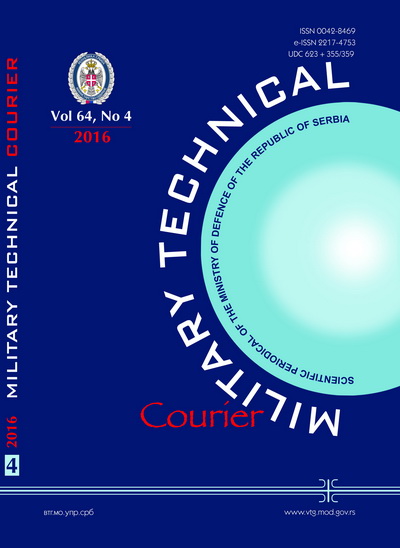Determining the maturity level of business organizations for ICT implementation in the case of electronic content management
Abstract
Starting from the fact that the use of electronic content is an imperative of our time, and from a general opinion that the application of modern information technologies can establish a solution for a reliable and simple organization and systematization of documentation, it can be stated that the organization's success depends directly on the achieved level of information management.
Timely, accurate, verifiable, readily available and consistent data are more than necessary for business activities; however, the basic problem of the use of these data is not their existence, but the place and manner in which these data are stored and organized within distributed business units. In addition, the introduction of information technologies into business processes results in more and more useful data; nevertheless, the question is the degree of their utilization.
The object of the study was to determine the degree of "maturity" of business organizations for the implementation of information and communication technologies, viewed through the prism of organizational, personnel and technological maturity of an organization for the implementation of an electronic content management system. At the same time, the use of appropriate maturity models for electronic content management aims at approaching the maturity model concept to business organizations.
References
Cameron, S.A., 2011. Enterprise content management: a business and technical guide. BCS, The Chartered Institute.
Katuu, S., 2013. The Utility of Maturity Models—The ECM Maturity Model within a South African context. In Capability assessment and improvement workshop (CAIW) at IPRES.
Klein, M. and Methlie, L.B., 2009. Knowledge-based decision support systems with applications in business: a decision support approach.
Matthew, L., 2003. Mission-critical Network Planning. Artech House Inc., London.
Milenković, D. 2013. Statističko upravljanje repozitorijumima elektronskih dokumenata primenom koeficijenata preferencije. Doktorska-disertacija. Beograd: Fakultet organizacionih nauka.
Milenković, D. 2014. Razmena elektronski potpisanih dokumenata u Ministarstvu odbrane i Vojsci Srbije. Konf-zbor. U: Simpozijum o operacionim istraživanjima SYM-OP-IS.
Milenković, D. 2015a. Primena modela zrelosti za utvrđivanje stanja upravljanja korporativnim sadržajem. Konf-zbor. U: Konferencija o računarskim naukama i informacionim tehnologijama YUINFO, Kopaonik.
Milenković, D. 2015b. Upravljanje dokumentacijom u poslovnim organizacijama. Zadužbina Andrejević. Monografija.
Pelz-Sharpe, A., & et al., 2010. ECM3 - ECM Maturity Model.
Proposed Creative Commons Copyright Notices
Proposed Policy for Military Technical Courier (Journals That Offer Open Access)
Authors who publish with this journal agree to the following terms:
Authors retain copyright and grant the journal right of first publication with the work simultaneously licensed under a Creative Commons Attribution License that allows others to share the work with an acknowledgement of the work's authorship and initial publication in this journal.
- Authors are able to enter into separate, additional contractual arrangements for the non-exclusive distribution of the journal's published version of the work (e.g., post it to an institutional repository or publish it in a book), with an acknowledgement of its initial publication in this journal.
- Authors are permitted and encouraged to post their work online (e.g., in institutional repositories or on their website) prior to and during the submission process, as it can lead to productive exchanges, as well as earlier and greater citation of published work (See The Effect of Open Access).

